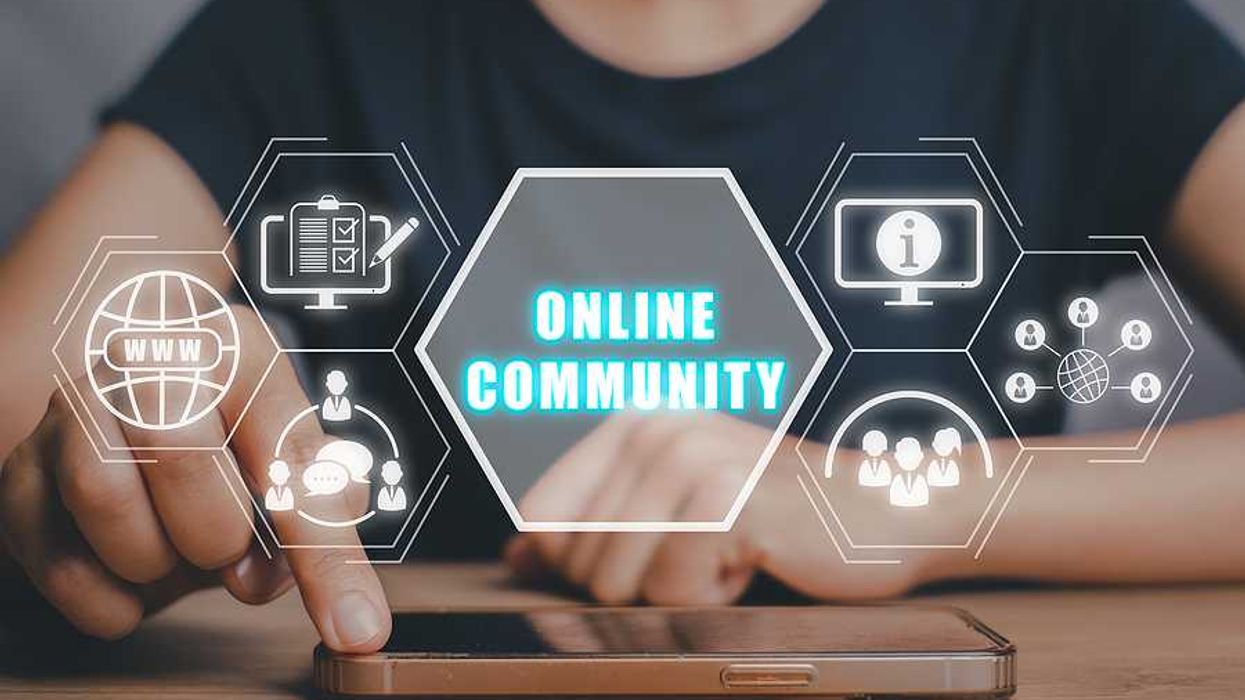
Staying relevant is the secret to long-term success as a leader, no matter your industry or profession. Leaders who fail to stay relevant in their careers will eventually get pushed out of their jobs and will find it difficult to get another one at the same level that offers their desired salary. So, as a leader, you need to ask yourself, "Am I doing enough to stay relevant in my career?"
We recently asked our successful executives how they think a leader can stay relevant in their career and industry.
Here are their responses...
John Schembari, Senior Education Executive
Want to stay relevant? Increase your influence. Influence can be exhibited both in-person and virtually. Not only should you join associations and attend conferences, which are making a comeback post-COVID-19, but you should also present on current topics of interest to peers at these events. Online, influence can be demonstrated by curating others' social media content as well as through the creation of one's own. Write articles as a guest blogger on industry-specific websites. Add voice to industry conversations by commenting on others' posts (on whichever online platform "your people" live and play) as well as by participating in podcasts; I have particularly enjoyed networking with educators from around the globe by serving as a panelist on live virtual events and as a guest on different podcasts. What can you provide/give back to the community at the same time you seek to develop your own career?
John Schembari is a current K-12 teacher/school leader academic improvement coach and former school building and district administrator. He loves to draw, travel, swing dance, and read nonfiction.
Michael Willis, Sports Business Operations Executive

Image from Bigstock
How to stay relevant in your career and industry:
1. Find the source of wisdom - Notable influencers often utilize blogs and podcasts to share ideas or interview other professionals. Stay positive as you listen to these new ideas.
2. Social media - CNN, Twitter, and LinkedIn are great resources for information, along with professional conferences and seminars.
3. Keep learning - Take advantage of free online courses. Be aware of what’s changing around you. Watch trends and remain familiar with them. Don’t get stuck in your comfort zone.
4. Share the wealth and speak up - As you find interesting information, pass it on to others. Open a dialogue with other professionals. Be on the lookout for new opportunities.
5. Know your competitors - I love this one. We as professionals should know our current, future, and new market entrants’ competitors. Some people view competitors as the enemy. I like to keep competitors close. Maybe they’re doing something that we are not doing. Maybe our competitors are doing something in better ways than we are. As a point of sharing, we may have something that we do that our competitors can use in their business models.
Michael Willis has 18+ years of experience working with accounting & sports organizations and has managed P&Ls of $10M - $125M+ with budgets of $3M-$50M+. He worked for the NFL for 22 1/2 years, mainly with the game officials working on the financial/accounting side of the business.
Maria Grandone, Director In Higher Education

Image from Bigstock
How to stay relevant in an ever-changing environment:
1. Stay ahead of the curve. You are willing to learn from others, take advice, do your research, and stay driven by your passion to effect real change.
2. Innovate through collaboration. Provide a voice to your stakeholders in the process to gain support because they will support what they help create.
3. Invest in your own development & network. Find strategic opportunities to develop yourself and your network. Your organization might offer opportunities through conferences, podcasts, books, and colleagues who are willing to mentor/coach you.
4. Practice active listening & learn. The ability to really listen to understand interests, ideas, opinions, concerns, and challenges facing your organization.
5. Keep it all in perspective. As you seek opportunities for collaboration with lasting approaches to the work, you must be transparent and look at the challenges with the appropriate lens.
Maria Grandone is dedicated to student access and success, particularly of underrepresented students in higher education. She loves to wake up early to meditate, go for an early morning run, and meet people from all walks of life.
Ana Smith, Talent Architect & Global Learning Strategist

Image from Bigstock
In this highly competitive digital business environment, it is crucial to stay relevant, competitive, and marketable. You’ll need to make sure that you’re continuously improving and evaluating yourself regularly. There are several areas; we will focus on these five fundamental ones today:
1. Specialize in your area, not in everything - Don’t try to be a jack-of-all-trades, while becoming a master of none. Instead, discover your natural aptitude and excel in that discipline.
2. Focus on the big picture - Build a reputation for yourself in your own company as a doer and problem solver.
3. Focus on great communication - Communication skills are still imperative in the globalized workplace environment. Also, in this hybrid, remote, and in-office workplace, effective and frequent communication is key.
4. Staying social - Social media is a great way to stay in touch with clients and customers. It allows users to express concerns, ask questions, and even praise you for great work.
5. Networking - Building and nourishing business-related relationships are fundamental to a successful career.
Ana Smith helps people & organizations achieve their full talent potential by developing and co-creating people strategies and customized solutions, and turning them into impactful outcomes and collaborative relationships, using coaching as the "red thread."
Mark Taylor, Product & Operations Executive

Image from Bigstock
There isn’t a monolithic playbook or magic bullet that will address the challenge. Pragmatic insight and speed are better options.
Firstly, understand at its most fundamental level what your company does and why it needs you to do what you do.
Secondly, speed is of the essence; get your work done quickly. The more you do in a shorter time, the sooner you iterate your way to a fundamental understanding of your job. Speed will also allow you breathing space to craft a view of what this “fundamental job” becomes in the future.
Perhaps most importantly, could your role be eliminated? Rather than being on the receiving end of that, could you be the one to drive that change proactively? After all, you now know the essence of the job better than anyone else. Who better than you to take the lead in retiring the old and embracing the new?
Mark Taylor has 20+ years of risk, technology, and product management experience working in global and regional financial services firms in the UK and the U.S. He's managed teams of 40+, successfully addressed 100+ regulatory issues, and has saved companies $15M+.
Dr. Hannah Hartwell, Learning & Development Executive

Image from Bigstock
We're fortunate to have access to so much information. Think about it. Even 15 or 20 years ago, there was not nearly as much access to information on any subject and topic.
Here are three ways to stay relevant:
1. Read - Find fascinating thought leaders that give you a different point of view.
2. Listen - Since you now have a different perspective, engage with others to have a mutually beneficial conversation. Expand your knowledge and share what you know with others.
3. Contribute - Here's your chance to shine! Share with others what you found to be most helpful, or even what you found to be not so helpful. It's important to have conversations about both of these topics, and figure out how to contribute to your professional network.
Dr. Hannah Hartwell is a learning and development executive and change management practitioner with 15+ years of business transformation experience in the healthcare, pharmaceutical, higher education, and professional services industries.
Sarita Kincaid, Tech Media & Influencer Relations Executive

Image from Bigstock
The top three actions leaders should take to stay relevant in their careers are to prioritize learning, networking, and giving back. These seem like simple things to do but they require both an investment of time and a well-defined purpose. Take action by:
- Actively participating in professional organizations: Most professional associations offer workshops/classes as well as networking opportunities.
- Don’t let your skill set lapse, even if you’re in a leadership position: Know and use the tools your team uses every day.
- Speak at industry events: Leverage your network and professional organizations for opportunities to share your experience and learnings. These events can be great for market visibility and networking as well.
- Mentor: In addition to helping mentees on their career paths, I am always learning from them. A new college grad, for example, might share what’s important in terms of recruiting and retention—this information is invaluable and not easy to come by!
Sarita Kincaid is a tech media executive with a demonstrated ability to build and grow award-winning programs. She brings a data-driven approach to influencer relations with a focus on developing strong brand advocates and aligning them with sales programs.
Lisa Perry, Global Marketing Executive

Image from Bigstock
As a global brand marketer, there are five things I do every month to stay relevant and advance my career forward monthly.
1. Set Intentional Goals: I set career goals for myself. I write them down, list out the steps that it will take to get there, and track my progress. For example, a year ago I had a goal of publishing a book. This week, I will have accomplished that goal, officially publishing my first book.
2. Thought Leadership: I'm leveraging my brand marketing expertise to create content that people find helpful and informative. I do this by writing one article a month, participating in a weekly LinkedIn Live executive table talk, and posting 2-3 LinkedIn, TikTok, and IG posts/videos a week.
3. Networking: I have a goal to expand my network, connecting with 50 new professionals every week, meeting 1-3 new people each week to see how we can help each other professionally, and being available to my current network of professional friends, to help in any way I can.
4. Reading: I haven't been much of a reader until this last year or so. I decided to change that and joined The Marketing Book Club driven by Musa T. The books are excellent and the discussions are insightful. I've learned so much from this talented group of individuals.
5. Learn New Skills: I love learning new skills and pushing myself into new and uncomfortable areas. Right now I'm learning as much as I can about the metaverse and how this will impact business growth in the future.
Lisa Perry helps companies build leadership brands, driving loyal customers & delivering profitability. She does this through a process that builds brands consumers love. Her goal is to help companies develop, monetize, and grow their brands.
How do you think a leader can stay relevant in their career and industry? Join the conversation inside Work It Daily's Executive Program.
- #1 Secret Executives Use For Career Success ›
- How To Stay Relevant In An Ever-Changing Job Market ›
- The Stigma Of Career Coaching (And Why It's Changing) ›
- How To Overcome Age Discrimination In Your 2023 Job Search ›
- New Year’s Resolutions Every Leader Should Make In 2023 - Work It Daily ›
- Top Brand Marketing Trends Leaders Must Incorporate - Work It Daily ›
- How To Influence Key Stakeholders - Work It Daily ›
- How To Stay Current With Trends As A Busy Executive - Work It Daily ›
- Leadership is About Influence, Not Control - Work It Daily ›

 Bigstock
Bigstock Bigstock
Bigstock Bigstock
Bigstock


